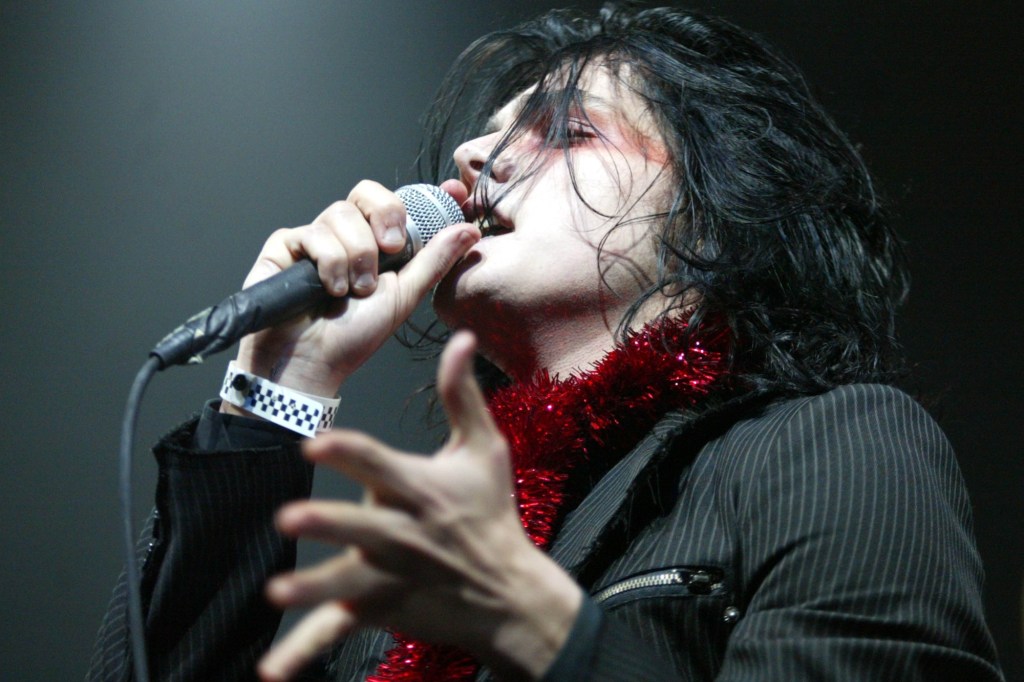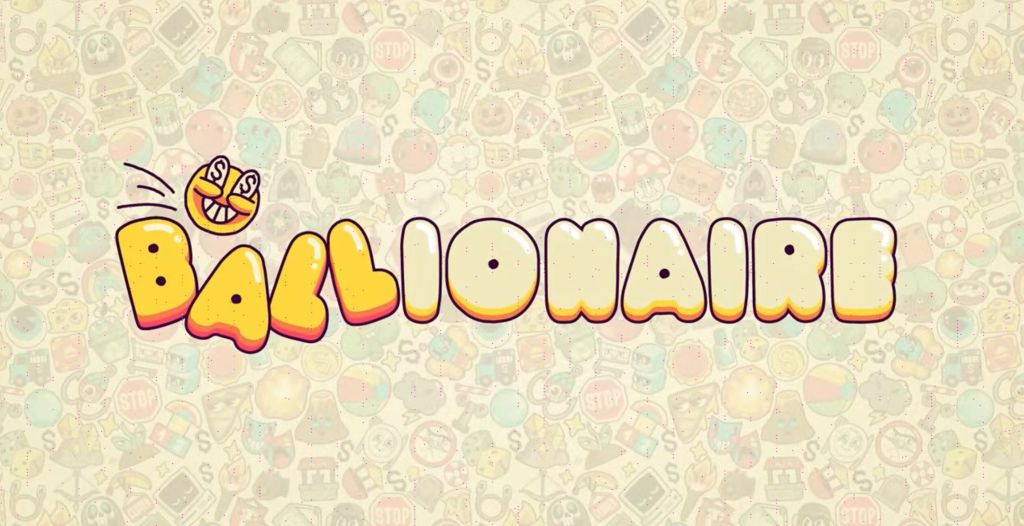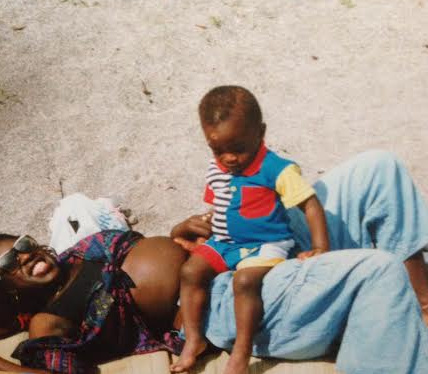This feature is part of ‘The Noisey Guide to Music and Mental Health’ (in association with Help Musicians UK).You can read more from this series right here, and follow ‘Mental Health Awareness Week’ on Twitter here.
– – –
Videos by VICE
It was Monday morning that pissed me off the most. As the first day of the week, it was the one that demanded the most from me. I was working at a large advertising agency at the time, which meant that communication and interaction were a given, but I’d started to feel depressed and most mornings I would have to mentally psyche myself up just to leave the house. Lunch breaks would stretch long past the designated hour. Trips to the toilet became far more frequent. The attitude of my boss induced feelings of anxiety, and I’d look for anything to avoid interacting with him.
Being black meant that I was one of the few ethnic minorities working at the advertising agency, which often meant taking on an identity that would feel more familiar to my colleagues. When I talked, I would find myself pronunciating each letter in an effort to be understood. If I left my desk, I would find myself walking differently. At lunch, I would swap home-cooked meals for a dry sandwich from Tesco. For years, I was unable to articulate my thoughts on blackness and what it means to navigate it when you live in a space where the majority are white.
My relationship with my mum had been put back together on countless occasions, but at this point, it was broken again. Unlike school, the responsibilities and pressure that came from work meant that it didn’t provide the temporary refuge that school used to offer when my parents and I weren’t speaking. I’d become run down. From every angle, it felt like life was finding new stumbling blocks to place in front of me until I no longer had the energy to fight. It was as if Thor had placed his hammer on my chest and the weight of the world collapsed in on my ribcage. I ended up attempting suicide that year, and only confided about it with two of my closest friends.
One of the biggest parts of my life had always been my love of rap music, but during that time it had become white noise. My ears found the sounds palatable, but the music couldn’t stir any emotion within. Take, for example, Drake. That year he released Nothing Was the Same, and while it spoke of the man’s acclimatization to newfound success and galvanized a generation, it didn’t speak to me. Drake was concerned with petty fall outs and ghosting ex-girlfriends, which sat at a base level. Yeah, it was emotional—but it didn’t go deep into the semantics of it. I needed to hear something that translated the gravity of what I was going through.
It wasn’t until I discovered Isaiah Rashad a few months later, that I fell in love with rap again. When Rashad released his debut Cilvia Demo EP in January 2014, a calming entity orbited into my routine—it wasn’t music that could simply offer me escapism or distraction, it was music I turned to to provide clarity, and to help me make sense of what I was experiencing.
Rashad—who is signed to Top Dawg Entertainment, the same label as Kendrick Lamar, ScHoolboy Q, and Ab Soul—as spoken extensively about his struggles with depression and suicide attempts, which he shares across Cilvia Demo. The project itself specifically explores his relationship with his father, police brutality and mental health—all of which are navigated with an unwillingness to hold back. It was here, at the crossroads between those three topics, that Cilvia Demo helped me to understand my feelings weren’t anything to be ashamed of, nor was sharing them.
The combination of lines like “I don’t want to think of suicide” on “Heavenly Father” and “Hope they don’t kill you cause you black today / They only feel you when you pass away / The eulogy be so moving, we live the scenes of those movies” on “Ronnie Drake” communicated what I was unable to say when I felt my voice was insignificant. Whether it was the brooding nature of “West Savannah” and “Tranquility,” where Rashad revealed his suicide attempts and substance abuse, or the lines that helped me deal with the odd “You don’t talk how I imagined you would” comment from my colleagues at work, it was the first time an artist had spoken to the entirety of my experience. Rashad was traversing the intricacies of my history, identity, and psychological mindset.
For black people in particular, it can be difficult to talk about mental health, as the subject is still seen as a big taboo. Judgment of those suffering mental illness is high and there’s an unwillingness to confront the subject, meaning that those with a problem often suffer in isolation. While mental health affects all genders, the expectations attached to masculinity mean that black men especially have a difficulty in sharing and expressing deep feelings. Older family members who find solace in scripture tell us to “pray away” our problems. Others tell us to just man up.
You only need to look at the statistics to see how this attitude is causing huge problems. According to Time To Change, 80 percent of people from black and ethnic minorities in Britain feel unable to speak about their mental health problems. In 2014, The Guardian reported that black men in the UK are 17 times more likely to be diagnosed with a psychotic illness than their white counterparts. But when we do get help, it too often goes wrong. That same Time To Change survey noted that nearly half of black and minority ethnic people who sought help for their mental health problems said they experienced discrimination from mental health staff themselves.
It’s something that has to change, and the whole reason Time To Change conducted that survey was to do just that. But at the same time—and perhaps as a byproduct of all this—I’m not the only one that has found myself turning to music instead of seeking help when I feel like I need some sort of therapy.
For decades, rap has helped lift black people up beyond subjugation, offering them temporary sanctuary from social injustices, racism, police brutality, and more. As Kanye sings so poignantly in the album opener to Chance the Rapper’s Coloring Book: “Music is all we got.” And for that reason, you cannot put a price on how valuable it is when a black artist bravely chooses to create art as explicit and powerful as the sound of them wrestling their own mental health demons.
But aside from maybe NWA, DMX, and a few other notable examples—the Geto Boys 1994 track “My Mind is Playing Tricks on Me,” which detailed paranoia, or Biggie Smalls “Suicidal Thoughts”—it’s traditionally been quite rare for rappers to speak at all about mental health, partly because of the stigma that’s been ingrained within its cultural bedrock. However, whether it’s someone like Earl Sweatshirt—whose last album, I Don’t Like Shit, I Don’t Go Outside, documented the generalized anxiety that comes from having to engage with reality—or Kendrick Lamar—whoseTo Pimp A Butterfly spoke powerfully of the collective black struggle—that’s beginning to change.
In recent years, hip-hop has been a pivotal tool in helping to deconstruct a form of black masculinity that has been stifling far more than it has been liberating. While 50 Cent ferociously charged into rap all guns blazing, this decade has seen artists like Kid Cudi quietly approach the genre, unafraid to embrace rap’s vulnerable side. The chorus to “Soundtrack 2 My Life,” the first track on Cudi’s debut album Man On The Moon: The End Of Day, includes the lyric “I’ve got some issues that nobody can see / And all of these emotions are pouring out me,” showing just how far rap has shifted away from its braggadocious roots.
“My mission statement since day one has been to help kids not feel alone, and to stop kids from committing suicide,” Cudi told Arsenio Hall in 2014. “[That’s something that has affected me] for the last five years. There wasn’t a week or day that didn’t go by where I said, ‘You know, I want to check out.’ I know what that feels like and I know it comes from loneliness, not having self worth, not loving yourself—kids don’t have music that can coach them and give them that guidance. I had to listen to Jay Z and take certain things from it and the other shit, I didn’t know what he was talking about.”
I never sought treatment for my condition those two years ago, because of the fear that I would be misunderstood. But as artists begin to speak out about the struggles that are particular to black people, mental health services seem to be following suit. Recently, a platform called recovr has been set up, which is aimed at making mental health treatment accessible for young black adults, with the intention of sourcing black therapists and counsellors who can relate to their experiences. I would implore anyone who feels like I did to at least consider this.
As time goes on, my depression has begun to feel less like a ball and chain wrapped around my arm, and instead something that is just another part of me. I can’t escape that, I can only keep it at bay one day at a time. Over time, I’ve learned that vocalising my pain brings me one step closer to finding a remedy. The longer I ignored it and tried to pretend my threshold for it was high, the deeper I found myself falling into an abyss I couldn’t climb out of. And the moment I learned that music was my sanctuary, was the moment I finally knew that depression could no longer win.
Perhaps for Rashad, the creative process for Cilvia Demo provided some sort of release, but he also created an everlasting therapy for his fans. The rapper helped me through some of my darkest days, and his music also acts as a failsafe on the good days, when things can turn ugly at the click of a finger. Ultimately, though, the EP serves as a tool of empowerment. It played a pivotal role in helping me understand that there’s no template to being a black man, other than being yourself. Thank you, Isaiah.
You can follow Jesse Bernard on Twitter.
This feature is part of ‘The Noisey Guide to Music and Mental Health’. You can read more from this series right here. If you are concerned about the mental health of you or someone you know, talk to Mind on 0300 123 3393 or at their website here. And if you would like to know more about the work of Help Musicians UK, you can visit them here.
More
From VICE
-

(Photo by Matthew Simmons/Getty Images) -

Screenshot: CRITICAL REFLEX -

Screenshot: Raw Fury -

Screenshots: Electronic Arts, AdHoc Studio
